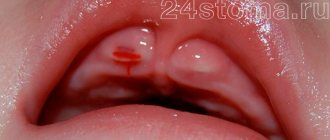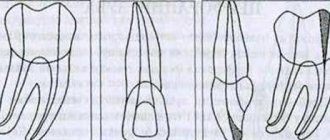Healthy teeth and gums, like other tissues of the human body, require a whole range of useful substances. These include not only minerals (calcium, phosphorus, magnesium, etc.), but also vitamins, which are catalysts for metabolic processes occurring in the body. With prolonged vitamin deficiency, quite serious negative consequences can develop. To exclude them, it is important to promptly notice signs of vitamin deficiency, and also, if possible, maintain an optimal balance of essential substances in the diet.
The most important vitamins for the health of teeth, gums and other oral tissues are:
Types of immunity
Immunity includes humoral and cellular immunity. Let's look at each of them in more detail. Humoral is ensured by the presence of antibodies (substances that bind to antigens) in the blood. Cellular is provided by cells of the immune system. Immunity can be congenital or acquired. In turn, the acquired one can be active or passive. Active develops after illness, for example, ARVI. It also forms after vaccination. Passive is formed when ready-made antibodies are transfused into the body in the form of serum. It also develops when antibodies are passed from a mother's milk to her newborn baby. In fact, natural immunity includes congenital immunity, acquired after an illness, as well as passive immunity during the transfer of antibodies from mother to baby. Artificial immunity is called immunity after the introduction of a vaccine or serum with antibodies.
Calcium for children
Calcium is one of the most important minerals for a child in the first years of his life. It helps the baby grow strong and healthy. Products containing calcium are something that a child’s body cannot do without. In their absence, there is no need to talk about normal growth and health of the skeletal system. Since the formation of the skeleton and body growth occurs from the moment of conception until the end of adolescence, the importance of factors influencing these processes in childhood can hardly be overestimated. Calcium is involved in many important processes, such as:
- formation of bones, dentin and tooth enamel;
- muscle contraction;
- blood clotting.
Article on our Yandex Zen channel
Immune organs
After we have examined the concept of immunity and its main types, it is necessary to pay attention to the organs that provide it.
There are central and peripheral organs of the immune system.
The central ones include:
- Red bone marrow. Found in bones. Serves as a source of formation of all blood cells, including cells of the immune system.
- Thymus. It further matures some of the immune system cells coming from the red bone marrow.
Peripheral organs:
- Lymph nodes.
- Spleen.
- Accumulations of lymphoid cells in the skin, respiratory organs, and intestines.
Pikovit
These vitamins are intended for babies aged 1 year and older. Available in tablet form and syrup form. There are 9 vitamins that are needed for the full growth and development of children over 1 year old (A, D, E, B1, B2, B6, B12, PP, C). "Pikovit" is indicated for children under 14 years of age, therefore the instructions indicate dosages for the specific age of the child. The only drawback of Pikovit is that it does not contain minerals that are so important for the development of many body systems. But the advantage of these vitamins is that they are convenient for families with children of different ages.
Pikovit
KRKA (KRKA), Slovenia
This is the optimal combination of vitamins and minerals for children from 1 to 14 years old.
The effectiveness and safety of Pikovit brand drugs has been proven during clinical observations and recommended by leading experts. The dosages of vitamins and minerals in Pikovit brand complexes correspond to the recommended daily dosages. from 80
786
- Like
- Write a review
Features of the formation of immunity in children
The formation of immunity in children has its own characteristics depending on age.
A feature of the formation of the immune system in children is the presence of so-called “ critical ” periods:
- The first critical period after the birth of a baby is the neonatal period. At this time, the baby encounters a huge number of pathogens. The immune system during this period is subject to strong immunosuppressive effects. This period is characterized by low resistance to many infections. There is a tendency to develop common infections.
- The second period occurs at the age of 3-6 months. It is characterized by a weakening of immune reactions due to the destruction of antibodies that were transmitted from the mother.
- The third period develops in the second year of life. During this period, the baby's contact with the outside world increases significantly. At this age, many abnormalities of the immune system appear, as well as autoimmune (directed against one’s own body) diseases. Children are prone to repeated acute respiratory infections.
- The fourth period occurs in the 4th-6th years of life. This period is characterized by a high prevalence of allergic and parasitic diseases. During this period, many chronic diseases develop.
- The fifth period occurs during adolescence. For girls this corresponds to 12-13 years old, for boys - from 14-15 years old. A large growth spurt is accompanied by a decrease in the mass of lymphoid (immune) organs. An increase in the formation of male sex hormones leads to a decrease in the cellular component of immunity. In this regard, many allergic diseases are weakened. The influence of the external environment on the development of immunity is increasing. At this time, there is a new rise in the incidence of chronic inflammatory, autoimmune, and viral diseases.
The processes of formation of the immune system in children can slow down under the influence of various external factors:
- Xenobiotics (chemicals).
- Intrauterine infections
- Frequent ARVI and digestive tract infections.
- The influence of environmental environmental factors and many others.
Some external factors can slow down the development of the immune system in children.
These factors, which slow down the formation of the immune system in children, lead to functional immaturity of the immune system and, accordingly, predispose them to the development of immunodeficiency states (a state of reduced immunity).
Complivit Oftalmo
These vitamins, which improve vision, are intended for children from 3 to 14 years old. "Complivit Oftalmo" is presented in the form of a powder for the preparation of a suspension. Vitamins strengthen the child’s body in general and support vision in particular. "Complivit" contains the following substances: zeaxanthin and lutein - carotenoids of plant origin that help improve vision. If a child often sits in front of gadget screens and strains his eyes, the need for these substances increases sharply. The complex contains 9 vitamins and 3 microelements, they protect the eyes from the negative radiation of the monitor and UV rays. The only drawback is that Complivit Oftalmo contains few minerals, but since these vitamins are specifically for vision, everything is quite logical. Excellent vitamins to prevent vision problems. The main thing is an integrated approach and proper organization of a healthy lifestyle.
Complivit Oftalmo for children
JSC Pharmstandard-UfaVITA, Russia
Complivit Ofthalmo for children is specially designed for children from 3 to 14 years old, it contains the most important components: lutein and zeaxanthin, which are responsible for the acuity and quality of vision. The Complivit Ophthalmo complex for children includes vitamins, minerals and plant carotenoids that are important for vision, which: - improve the functional state of the visual organ; - help reduce visual fatigue and improve vision under increased visual stress; - lutein and zeaxanthin protect the eye structures from damage caused by ultraviolet radiation, as well as radiation from computers, televisions, and displays.
227
- Like
- Write a review
Vitamins and their role in immunity
Vitamins are substances necessary for normal life, the formation of which in the body is absent or very limited. Basically, the source of these substances in children is food and intestinal bacteria, which are also capable of forming them.
They have their own characteristics:
- They are not included in the structure of the baby’s organs and tissues.
- Not used by the body as a source of energy.
Depending on their ability to dissolve in water or fat, vitamins are divided into two large groups:
- Fat soluble . These include vitamins A, D, E, K, as well as vitamin-like substances - ubiquinone (vitamin Q), essential fatty acids (vitamin F).
- Water soluble . These include vitamins B, H, C, vitamin-like substances - choline, lipoic acid, carnitine, orotic acid and others.
Unfortunately, there are reasons that can lead to a decrease in the level of these substances in the body. This problem has a medical name - hypo- and avitaminosis.
Causes of hypo- and avitaminosis:
- Impact of environmental factors.
- Poor nutrition.
- Malabsorption.
- High need (for example, in premature infants and during puberty).
- Liver diseases.
- Increased breakdown of vitamins.
- Damage to intestinal microflora. You can find out more about this problem in our article.
Symptoms of vitamin deficiency
A lack of certain vitamins can lead to decreased immunity.
Hypovitaminosis, as a rule, has nonspecific symptoms. These include: increased fatigue, decreased body defenses, weakness, lethargy. Vitamin deficiencies have more specific (certain) symptoms. We will not dwell on each vitamin deficiency in more detail, but will only consider vitamins, the lack of which can lead to a decrease in immunity.
These include:
- Vitamin A . Its deficiency is manifested by damage to the eyes, skin, and increased susceptibility to infections.
- Vitamins of group B6 (pyridoxine, pyridoxal). A lack of these substances can lead to dermatitis, lymphopenia (decreased levels of immune cells), anemia, and convulsions.
- Biotin . A deficiency of this substance can lead to seborrhea, hair loss, and deterioration of the immune system.
- Vitamin C . A lack of vitamin C leads to increased fragility of blood vessels, fatigue, pain in the limbs, tooth loss, poor wound healing, and increased susceptibility to infections.
- Vitamin D . A lack of vitamin D leads to the development of rickets in the baby, which is also accompanied by a decrease in immunity and an increase in the overall morbidity of the baby.
Healthy foods
To avoid caries and gum inflammation in your baby, it is important not only to teach him to take vitamins, but also to balance his diet. The most beneficial foods for teeth and gums are:
- Dairy . They contain a significant amount of calcium, maintain healthy enamel, and strengthen teeth.
- Leafy vegetables . During the chewing process, they clean the oral cavity and destroy microorganisms in hard-to-reach areas.
- Water . It is important for children to drink enough fluids per day. A dehydrated body is less resistant to attack by viruses and bacteria.
- Fish. River and sea inhabitants contain selenium, fluorine, phosphorus and calcium, substances essential for the health of gums and teeth.
So, now you know what vitamins are needed to strengthen teeth, gums and the normal development of a child. We are sure that you will be able to create a delicious and healthy menu for your beloved baby and select vitamin complexes suitable for teeth.
And to turn your child’s daily dental care into a holiday, try Asepta Kids toothpaste with a bright “tutti-frutti” flavor. This gel paste was developed taking into account the structure of enamel in children aged 4-8 years, specifically for the daily protection of children's teeth from caries and the prevention of gum inflammation. "Acepta Kids" does not contain fluoride and gently cleans teeth from caries, prevents gum inflammation and the formation of tartar.











